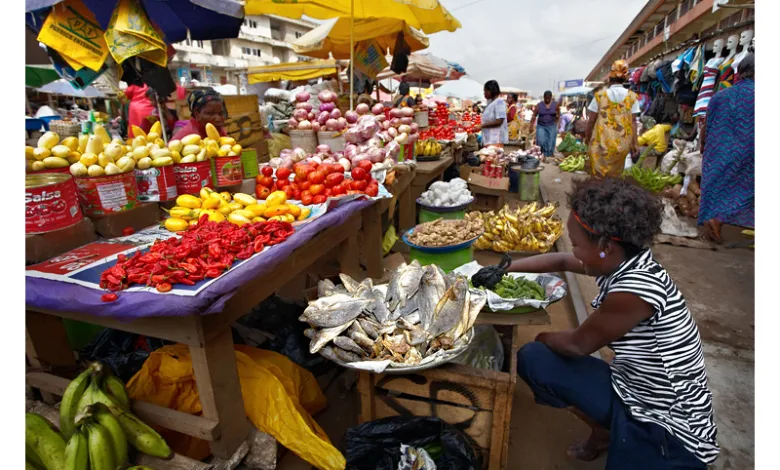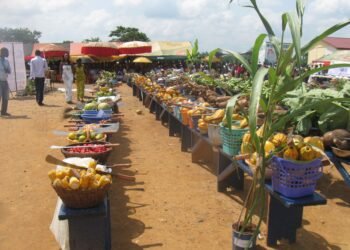The General Agriculture Workers Union (GAWU) has issued a sobering forecast, indicating that the prices of foodstuff are poised to maintain their upward trajectory until June 2024.
This revelation comes despite a recent decline in food inflation, which dropped to 27.1% in January 2024 after six consecutive months of decrease.
Mr Edward Kareweh, the General Secretary of GAWU, emphasized that consumers should not anticipate any immediate relief in food prices. He cited the ongoing lean season of production across the country, noting that no region is currently undergoing significant food harvesting activities, particularly with staple crops like maize and rice.
“The price of food will not get better anytime soon,” Kareweh cautioned. “We are entering or already in the lean season of production, and no part of the country is experiencing substantial harvests of foodstuff, especially the major staples.”
Mr Kareweh elaborated on the prevailing agricultural conditions, highlighting the absence of rainfall in many parts of the country. “Generally speaking, there are no rains throughout the country, and at this time also the Western parts of the country will begin preparation of their farms for the major season,” he explained.
Drawing attention to the dependence on last year’s harvest during this period, Mr Kareweh noted that consumers should not expect immediate relief in food prices. He projected that prices would likely continue to rise until the commencement of harvesting activities around June or July, primarily in the Southern regions of the country.
The gravity of the situation is further explained by the inflation rates recorded across various sub-classes of goods and services. Out of fifteen sub-classes, ten have registered inflation rates higher than the overall food inflation.
Concerning Inflation Trend
Recent economic data has revealed a concerning trend as inflation rates surge across various divisions, significantly impacting consumer spending and economic stability. Among the findings, ten out of fifteen sub-classes have registered inflation rates higher than the overall food inflation, indicating broader economic challenges beyond just food prices.
Notably, seven divisions, including Alcoholic Beverages, Tobacco and Narcotics (38.5%), Personal Care, Social Protection, and Miscellaneous Goods and Services (32.0%), and Restaurants and Accommodation Services (29.2%), have reported inflation rates surpassing the national average.
In light of these developments, stakeholders are urged to brace themselves for continued economic challenges, particularly concerning the affordability and accessibility of essential food items. The need for strategic interventions to mitigate the impact of high food prices on vulnerable populations remains paramount.
Furthermore, enhancing productivity, efficiency, and resilience within key industries can help mitigate inflationary pressures and foster sustainable economic growth. Collaborative efforts between government agencies, businesses, and civil society are essential to address the root causes of inflation and ensure a more equitable and prosperous future for all.
Ghana’s agricultural sector, while vital to the economy, faces various challenges, including unpredictable weather patterns, inadequate infrastructure, and limited access to modern farming techniques. These factors can disrupt crop yields and contribute to supply shortages, driving up food prices.
Moreover, inefficient transportation networks and logistical bottlenecks contribute to increased costs along the food supply chain. Poor road infrastructure, coupled with fuel price volatility, can inflate transportation costs, which are ultimately passed on to consumers through higher food prices.
READ ALSO: Economic Hardship Sparks Nationwide Protests In Nigeria























